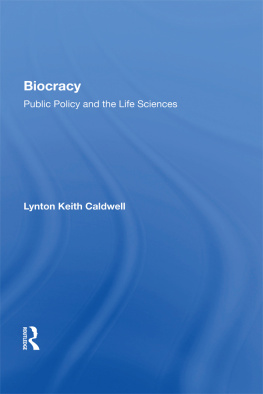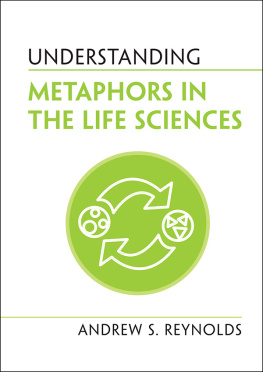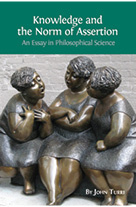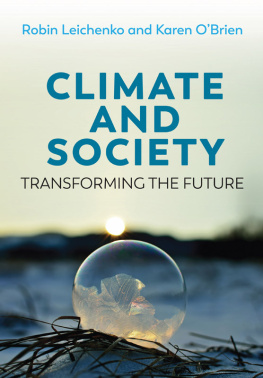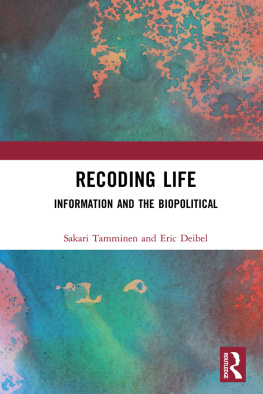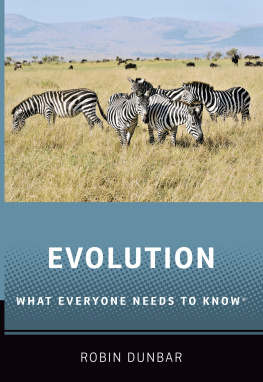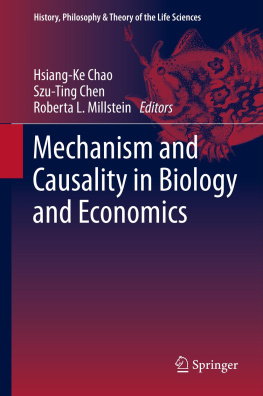Biocracy: Public Policy and the Life Sciences
About the Book and Author
Biocracy, a term invented by physiologist Walter Bradford Cannon, refers to the influence of biological science on society and its public policies. Beginning with the prophetic essay Biopolitics: Science, Ethics, and Public Policy, this book addresses various aspects of the relationships among the life sciences, society, and government. Included in the topics considered are some of the more critical issues of our time: the social responses to life science innovations; health and homeostasis as social concepts; the relationship between history and biology and that between the life sciences and the law; biocratic interpretations of ethical behavior and biopolitical conflicts; and the options, risks, and international consequences of biotechnology.
Caldwells book is a collection of articles that he wrote on this subject over a period of twenty-five years. Of the ten chapters, four have previously appeared in scholarly journals but have undergone extensive editorial revisions appropriate to this publication. The remaining six chapters have been presented at various professional meetings but have not hitherto been available in print.
Lynton Keith Caldwell is director of science policy studies at Indiana University, where he is also professor of public and environmental affairs and the Arthur F. Bentley Professor Emeritus of Political Science.
First published 1997 by Westview Press
Published 2018 by Routledge
52 Vanderbilt Avenue, New York, NY 10017
2 Park Square, Milton Park, Abingdon, Oxon OX14 4RN
Routledge is an imprint of the Taylor & Francis Group, an informa business
Copyright 1997 by Taylor & Francis
All rights reserved. No part of this book may be reprinted or reproduced or utilised in any form or by any electronic, mechanical, or other means, now known or hereafter invented, including photocopying and recording, or in any information storage or retrieval system, without permission in writing from the publishers.
Notice:
Product or corporate names may be trademarks or registered trademarks, and are used only for identification and explanation without intent to infringe.
Library of Congress Cataloging-in-Publication Data
Caldwell, Lynton Keith, 1913
Biocracy: public policy and the life sciences/Lynton Keith Caldwell.
p. cm.
Includes bibliographical references and index.
ISBN 0-8133-7363-8
1. Life sciencesSocial aspects. 2. Life sciencesPolitical aspects. I. Title.
QH333.C35 1987
303.483dc19
87-21315
CIP
ISBN 13: 978-0-367-01384-4 (hbk)
A brief indication of the authors intent may be helpful to readers of this book. My intent is to raise public awareness of a large and complex body of concerns regarding advances in biotechnology and the life sciences generally. The chapters that follow show in different ways how biology is affecting popular beliefs and behaviors and is therefore becoming a force in public policy. The term biocracy , first used (I believe) by Walter Bradford Cannon, has been taken to represent the power of life science knowledge in modern society. These essays were written to help the reader see the presence of this force in todays world and realize why the influence cannot be suppressed and must rather be understood. So that the reader will not be misled, Id like to make clear what the book is and is not.
Biocracy is a collection of essays written over a period of twenty-five years, beginning in 1963 (). The essays have all been updated and revised, and not one is in its original form. The earlier essays have not lost their relevance over the years because although biopolitical issues have multiplied, the related questions of values and policies remain largely unresolved. The book is intended primarily for the general reader but may also be of interest to scientist and expert. Each essay is in essence a different version of a common message: Advances in the life sciences are bringing about social changes and conflicts that, in the interest of human welfare now and in the future, should receive more serious and widespread attention than is presently evident. This proposition will be obvious to some people who see the book. As yet, however, it seems far from apparent to most people, many of whom see the issues discussed in these essays as unrelated to one another or to the encompassing larger issue identified here as biocracy.
The chapters do not form a progressive sequence of conceptual development, from first to last. Each essay stands largely upon its own argument, although some cross-referencing does occur to avoid unnecessary repetition. Certain concepts and attributions are nonetheless repeated in various chapters because they are basic to the development that is represented by biocracy. These references are relevant to different aspects of the influence of the life sciences and biotechnology. Their recurrence is therefore not repetitious, but rather a recognition of the multiple channels through which these influences reach society. In rereading these essays, which span a quarter century, I found that, in principle, no really great changes had occurred in the policy situations described. Major advances had occurred in biology and biotechnology, but as of 1987, changes in public attitudes and legal response were only beginning to appear.
Notes at the ends of the chapters have been provided where sources for verification or additional information seemed useful. For the most part the original notes and citations have been retained. They show that many of the ideas currently in controversy are not new. They do display a historical record of the biopolitical movement as we may identify it in retrospect. Pertinent references have been updated and expanded but left intact where little would be gained by their replacement. The separate character of the essays (or chapters) made provision of an index impractical.
This is not a book about biology or biotechnology per se. Its subject matter is their influence. The subject could be approached by several different routes (for example through adjudication; legislative action; or biopolitical issues such as genetic engineering, reproductive biotechnology, or research in molecular biology), and several books could be written on biopolicy with no great amount of overlap in illustrative material. An effort has been made, so far as possible, to avoid repeating what has already been written. References to bibliographic and periodical sources of this larger literature will be found in the notes to the chapters.
This is not a book of advocacy beyond its argument for informed attention to the social significance of developments in the life sciences. It does not fall into the error of biologism, which is the belief that all human behavior may ultimately be traced to biology. In controversies over the uses of biotechnology, my position for the purposes of this book is largely neutral. It is not neutral with respect to the need for informed rationality and a regard to consequences in the consideration of disputed courses of action. Nor is it neutral with respect to fraudulent or demonstrably abusive use of life science knowledge. Yet there are sincere and deeply held differences among people over the ethics of biological theory and practice. This book points out the political relevance of these differences, but it is not its function to analyze them in depth nor to ascertain the right or wrong of their contentions.

